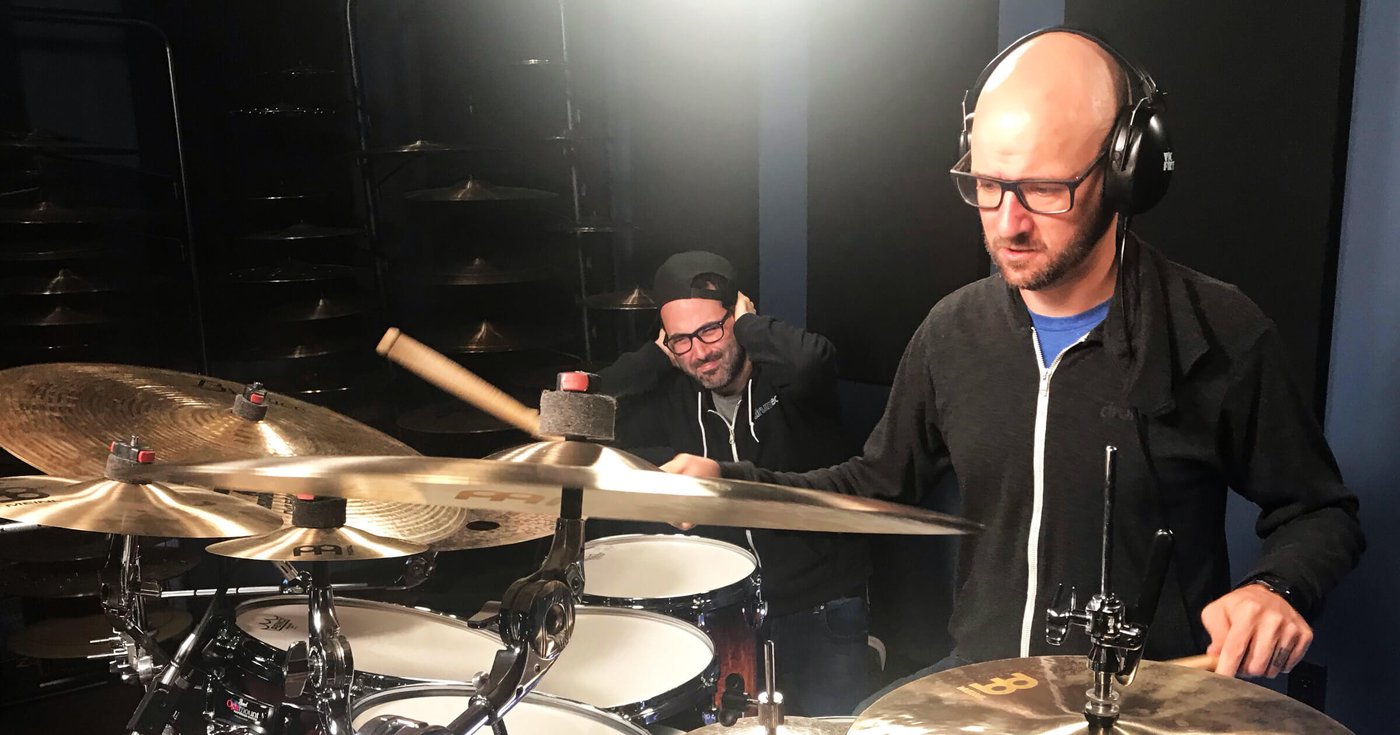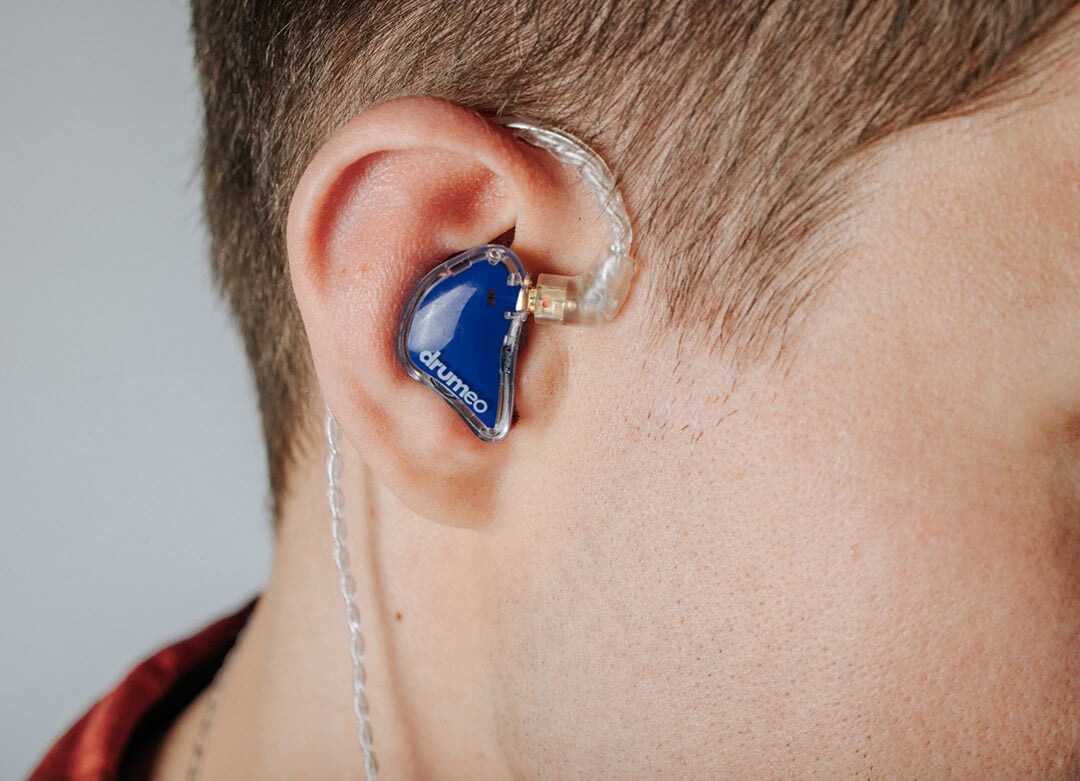
It may go without saying, but long-term exposure to loud noise can do a number on your ears. This article goes over ear protection for drummers, plus other ways to reduce drum volume.
Over 57% of pro drummers and 44% of amateur drummers have ringing in their ears (tinnitus). You’re almost four times more likely to have tinnitus than non-musicians. Even Lars Ulrich has dealt with ringing. As for general hearing loss, one study showed that it affected almost 40% of percussionists compared to 9% of the reference population.
Symptoms of hearing loss may include buzzing or ringing in the ears, feeling like the ear canal is ‘full’ or stuffed up, raising your voice when speaking to someone near you, or hearing sounds as muffled.
Some types of hearing loss can be reversed, so it may not be too late to fix the damage. But if you’re playing the drums regularly, what can you do to prevent it from getting worse? How do you turn down the volume on an acoustic instrument like the drums?
If you hope to keep drumming for years to come, here are a few things you should do to preserve one of your most important senses:
Whether you’re playing drums (over 100 decibels, or dB), rehearsing with other musicians (guitar amps can reach 120 dB), or hitting up a concert (rock shows can be 110+ dB), you should be wearing earplugs. Repeated exposure above just 85 dB can cause hearing loss. So if you don’t like how earplugs feel or you’ve convinced yourself it’s too late to protect your ears, think again. There are options!
They’re cheap, easy to find, disposable, and can reduce volume by 20-33 dB*. One size fits most, and they’re effective in most situations.
A step up from foam earplugs, silicone plugs are reusable, easier to insert, and may have a filter that blocks certain frequencies. They come in a flanged shape and volume reduction ranges from 12-29 dB. Look for ‘high fidelity’ on the label to make sure the sound stays clear even with volume reduction.
Drummers might not like wearing foam earplugs when playing with other musicians because they cut out too much sound. Custom earplugs are perfectly fitted to your ear canal, and you can choose the ones that only cut out high frequencies (like cymbals) while still making it easy to hear everything else. These can get expensive, but they’re definitely worth it. You can also use these with in-ear monitoring systems.
If you really don’t like plugs, you can get noise-reducing over-ear headphones and still be able to listen to tracks if you need to.
If you don’t need monitoring or to listen to recorded music or click tracks, pick up some construction-grade earmuffs to physically block the noise.
In-ear monitors: If you do want to listen to music while protecting your ears, in-ear monitors (like the Drumeo EarDrums) offer earplug-like hearing protection while letting you play along to songs or other musicians.
*To get a more accurate number of how many decibels you’re reducing, take the rating on the product, minus seven and divide by two before subtracting from the decibel level you’re protecting yourself against.

Drumeo’s EarDrums have helped over 14,000 drummers protect their ears while still listening to their favorite songs. We took your feedback and made a classic even better!
EarDrums are triple-driver in-ear monitors that seal in the music while reducing external volume by up to -29dB. With this latest version, you also get better connections, extra cable, a miniature road case, and the all-new triple black color!
Pick up a pair and make sure you hear it all for years to come.
High frequencies – like the sound of cymbals and snare drums – cause the most damage. Luckily, you can cut down on dangerous frequencies (and avoid bothering your neighbors) by making smart gear choices.
Certain cymbals (like the Sabian Quiet Tone line) minimize high frequencies and extra volume. Even if you don’t use them for live gigs, you’ll spend fewer hours each week surrounded by damaging noise without cutting down on your playing time.
Remo’s Silentstroke drumheads and Evans SoundOff drumheads are made of soft, springy mesh and are perfect for quiet practice.
Evans Soundoff rubber pads and Aquarian Super-Pads are drum mutes that drastically reduce the volume of heads and cymbals.
For a completely low-volume experience, an electronic kit (typically comprised of mesh or rubber pads/cymbals) is your best bet.
Are you rehearsing with electric guitarists? Crushingly loud amplifiers can also contribute to a drummer’s hearing loss. One solution is to ask your bandmates to turn their amps down; guitarists are often competing with the drums (and each other) for volume, especially in heavier genres like rock and metal. If this isn’t possible, move amps so they face away from you, and place them in front of the drums. This might make it harder for you to hear the music, so if you aren’t able to play quietly, it’s worth investing in in-ear monitors so you can hear everything clearly and adjust the volume yourself.
Give your ears a break. Be loud less often if possible. One study showed that the more hours played per week, the greater the likelihood of hearing loss (compared with the number of years playing). This doesn’t mean you need to stop drumming – especially for those who rely on making noise for a living – but let your ears rest in between rehearsals or gigs. If you regularly go to concerts or listen to loud music when you aren’t drumming, it’s definitely time to take a break.
Get your hearing tested if you’re worried about it. It may not be too late. Look up your local audiologist and save your ears!
*This article contains affiliate links, which means we might earn a small commission from the product seller if you make a purchase. For more info, check out our privacy page.
Samantha Landa currently drums with Conquer Divide and has been featured by outlets such as Sick Drummer Magazine and DRUM! Magazine. Sam proudly endorses Mapex Drums, Sabian Cymbals, Evans Drumheads and Los Cabos Drumsticks.


By signing up you’ll also receive our ongoing free lessons and special offers. Don’t worry, we value your privacy and you can unsubscribe at any time.
We use cookies for traffic data and advertising. Cookie Policy »